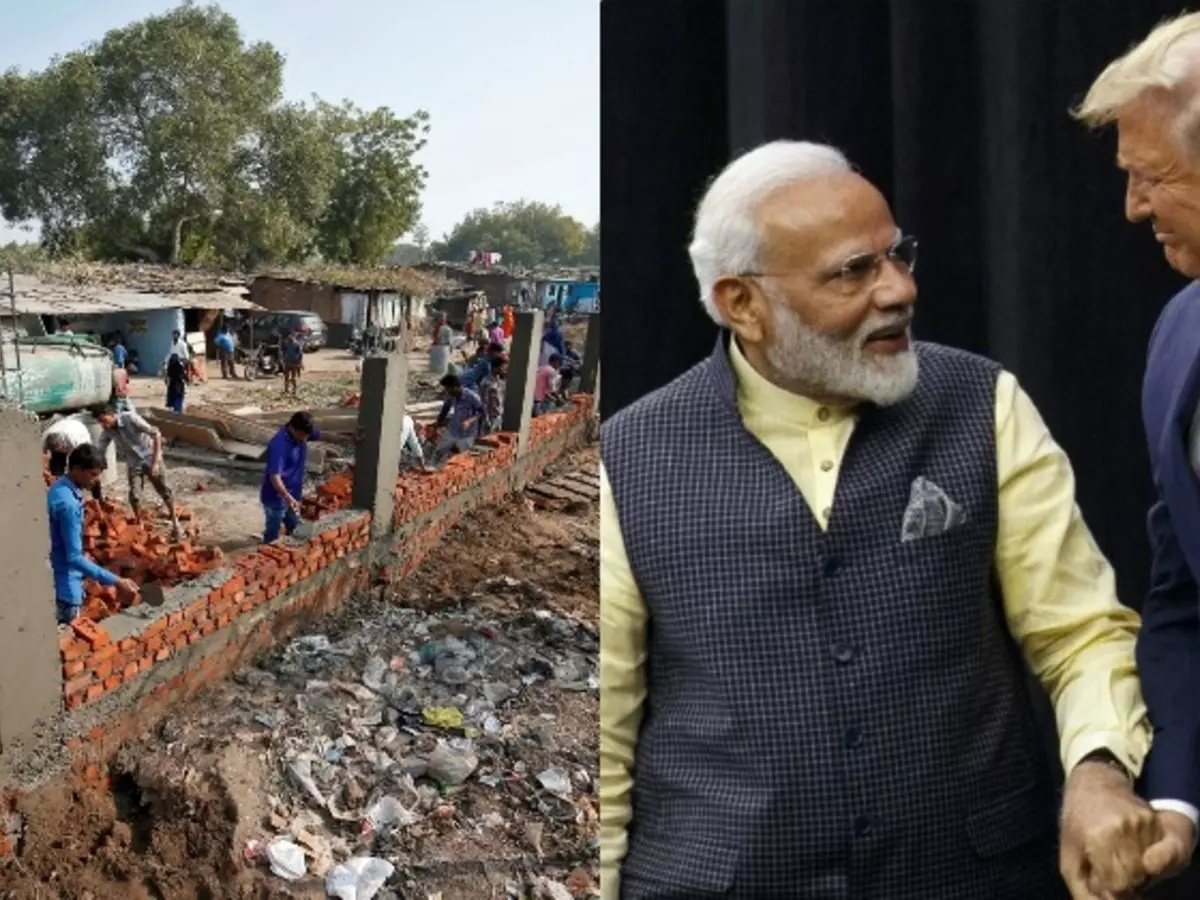Another Wall Up For US President Trump, This Time In Ahmedabad To Hide Slum Area Ahead Of Visit
Ahmedabad authorities have built a wall to shield US President Donald Trump from the sight of slums in India. A senior government official said the wall was being built for security reasons not to conceal the slum district. Trump will visit India on February 24-25 to reaffirm strategic ties that have been buffeted by trade disputes.

To shield US President Donald Trump from the sight of slums in India, Ahmedabad authorities have built a wall, while they say it is being built for "security reasons."
Trump is visiting India this month.
However, a senior government said the wall was being built for security reasons, not to conceal the slum district.
But the contractor building it told Reuters the government "did not want the slum to be seen" when Trump passes by on the ride in from Ahmedabad¡¯s airport.
"I¡¯ve been ordered to build a wall as soon as possible, over 150 masons are working round-the-clock to finish the project," the contractor said, speaking on condition of anonymity.

The official said the wall was part of a "beautification and cleanliness" drive.
Nevertheless, the 400-meter-long and seven-feet-high wall built for beautification, hides a slum district that houses an estimated 800 families.
Trump will visit India on February 24-25 to reaffirm strategic ties that have been buffeted by trade disputes.
The event is dubbed as "Kem Chho Trump" ("How are you, Trump") at a stadium in Ahmedabad along the lines of the "Howdy Modi" extravaganza he hosted for Prime Minister Narendra Modi in Houston last September.
 Reuters
Reuters
Speaking at the White House on Tuesday, Trump quoted Modi as saying "millions and millions of people" would attend the rally.
But some slum dwellers whose homes will be cordoned off by the wall in Ahmedabad - the largest city in Modi¡¯s home state of Gujarat - said the government was wasting tax-payer money to hide the poor.
"Poverty and slums are the reality of our life, but Modi¡¯s government wants to hide the poor," said Parvatbhai Mafabhai, a day worker who has lived there with his family for more than three decades.
